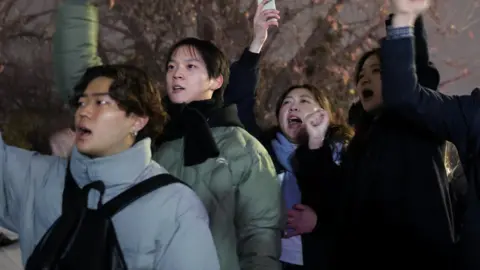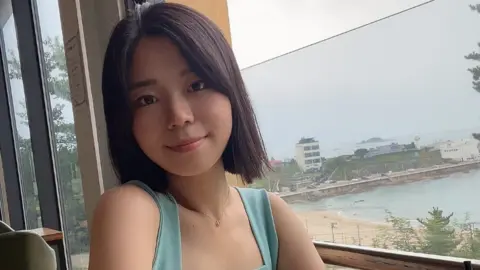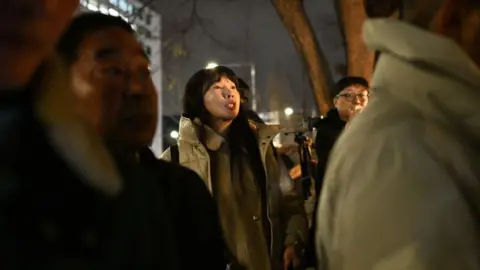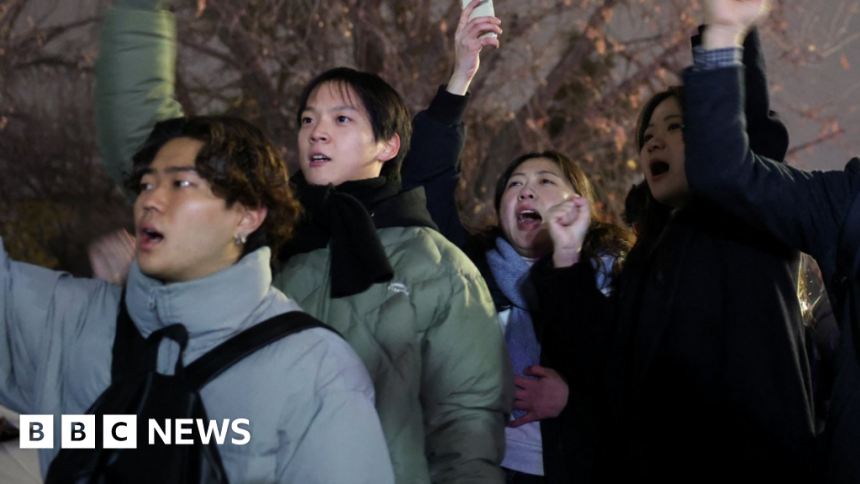‘It feels like a coup d’état’ – martial law sparks worry in South Korea
 Reuters
ReutersSouth Koreans have been describing feelings of worry, shock and confusion after the country’s president declared martial law, plunging the country into political chaos.
In a televised address on Tuesday, President Yoon Suk Yeol said the move was needed to protect the country from North Korea’s communist forces and to eliminate anti-state elements – before it was swiftly blocked by MPs.
It has left some anxious about the real life fallout from the political instability, including Seoul resident Ra Ji-soo, who reported hearing helicopters near her home late on Tuesday.
“It feels like a coup d’état in Myanmar is happening here in Korea. I’m worried,” Ra told the BBC.
Adding to the sense of events spiralling out of control, she also said a friend in the police force had received an emergency mobilisation order and was on their way to the station.
In the immediate aftermath of Yoon’s announcement, the country’s military declared the suspension of all parliamentary activity.
Footage showed a heavy police presence outside the National Assembly in the Yeongdeungpo District in the South Korean capital, and scuffles breaking out between police and protesters.
 HANDOUT
HANDOUTAnother Seoul resident, Kim Mi-rim, told the BBC she had hurriedly packed an emergency kit, fearing the situation could escalate. She recalled that previous instances of martial law involved arrests and imprisonment.
The BBC has also spoken to journalists in Seoul who are coordinating closely, sharing advice on staying safe as if martial law remains in effect, all media and publishing activities will fall under strict government control.
Other people feared they could be inadvertently impacted by the move.
“How can someone who say he serves the country be so careless in acting on his whim,” Don Jung Kang, a small business owner who makes accessories told the BBC.
“As a self-employed person I really think there will be a massive damage to my business. Just from his words the currency has crashed… And it will seriously affect importing materials.”
 Getty Images
Getty ImagesOn Tuesday night, the leader of South Korea’s main opposition The People’s Power Party, Han Dong-hoon, called on lawmakers and the public to gather outside the National Assembly building – the main parliament – in Seoul.
Protesters chanted “no to martial law” and “strike down dictatorship” as the sounds of sirens from dozens of assembled police patrol cars and riot police buses occasionally rang out.
Clashes between police and protesters were reported in the early hours of Wednesday.
But some people were left mystified by the move.
“The streets look normal, people here are certainly bewildered,” John Nilsson-Wright, an associate professor at the University of Cambridge, told the World Service from Seoul.
“It looked like this was simply politics of a normal sort.”






